Graduate, The (1967)
“There’s a great future in plastics; think about it.”
|
Synopsis: |
|
Genres, Themes, Actors, and Directors:
Response to Peary’s Review: Many (including myself) would disagree with Peary’s assertion that The Graduate is “dated”, given its iconic status as a cult favorite, with countless memorable scenes and quotes:
Peary is right, however, to point out that “the acting by Hoffman and Bancroft is super”, with “their scenes together still hold[ing] up”. Indeed, the first half of the film — during which Ben carries out his affair with Mrs. Robinson — is undeniably its funniest and most powerful, with nearly every scene packing a punch, and Nichols establishing himself as a master of sly romantic wit; Bancroft’s seduction of Hoffman will have you laughing out loud, yet simultaneously wincing at Ben’s obvious discomfort. Once Elaine “enters the picture”, it’s true that events take a more somber turn, and one can’t help regretting that Bancroft’s character eventually recedes into the background as a one-dimensional mother-bitch; but Ben’s pursuit of Elaine is ultimately what drives the film, so while we may miss Bancroft, we nonetheless remain glued to the screen, wondering how in the world Ben will salvage the mess that is his love life. Adding to the film’s appeal is the fact that Ben remains a sympathetic character throughout the entire movie, given that he was clearly (oh, so clearly) the one seduced by Mrs. Robinson; that he tells Elaine about his affair immediately after meeting her, at which point it stops; and that he’s never anything but transparent and sincere about his intentions to put his past with Mrs. Robinson behind him. It’s also easy to relate on a personal level to Ben’s broader existential dilemma, as he contemplates how to craft a life for himself without automatically following in his parents’ footsteps; there’s nothing at all dated about that coming-of-age scenario. Finally, Nichols’ creative direction (which, unlike Peary, I do find impressive), Richard Surtees’ cinematography, fine supporting performances, and Simon & Garfunkel’s instantly recognizable soundtrack all add to the appeal of this deserved cult classic. Redeeming Qualities and Moments:
Must See? Categories
(Listed in 1001 Movies You Must See Before You Die) Links: |
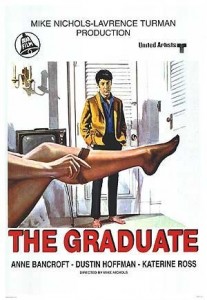
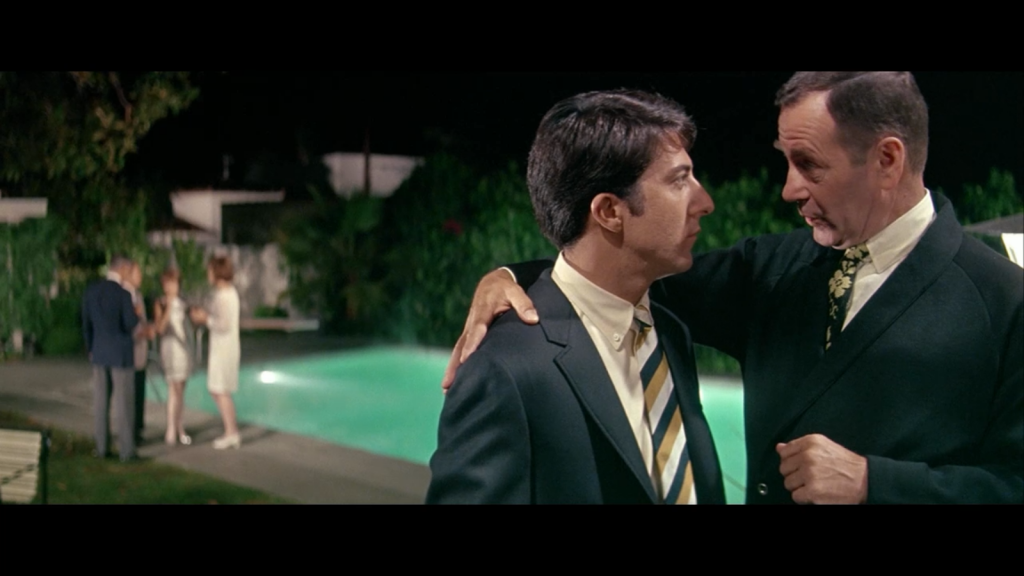
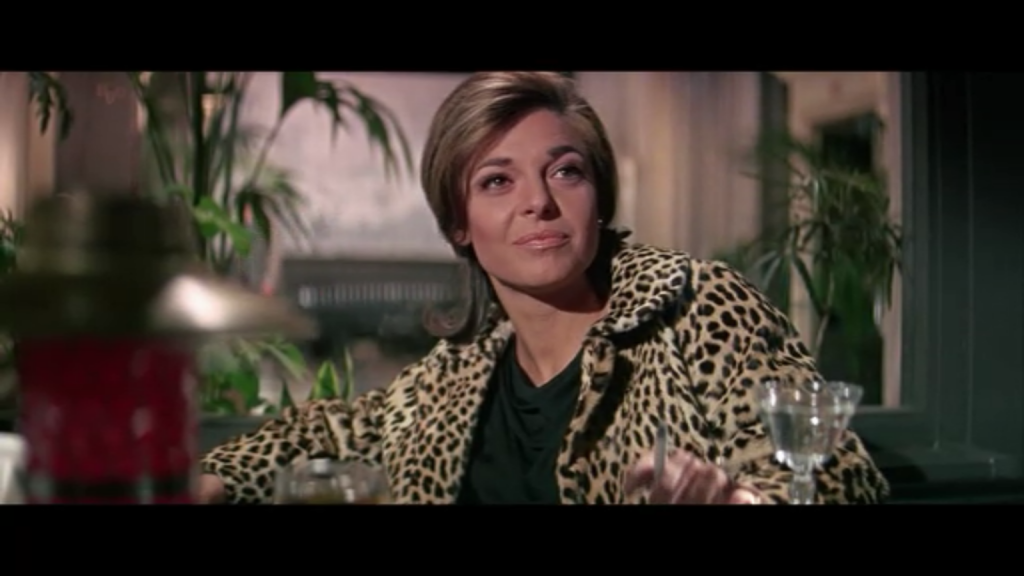
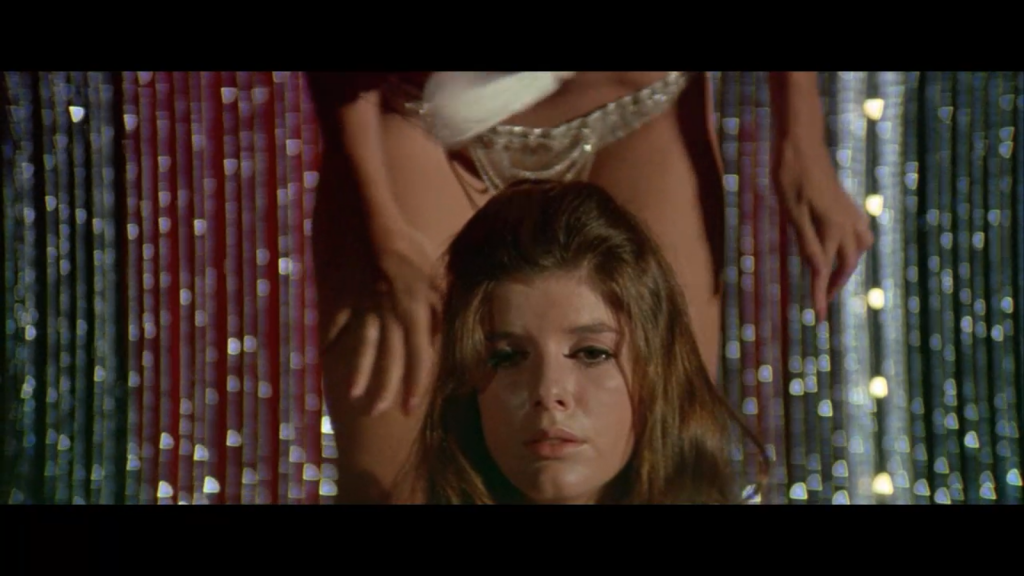
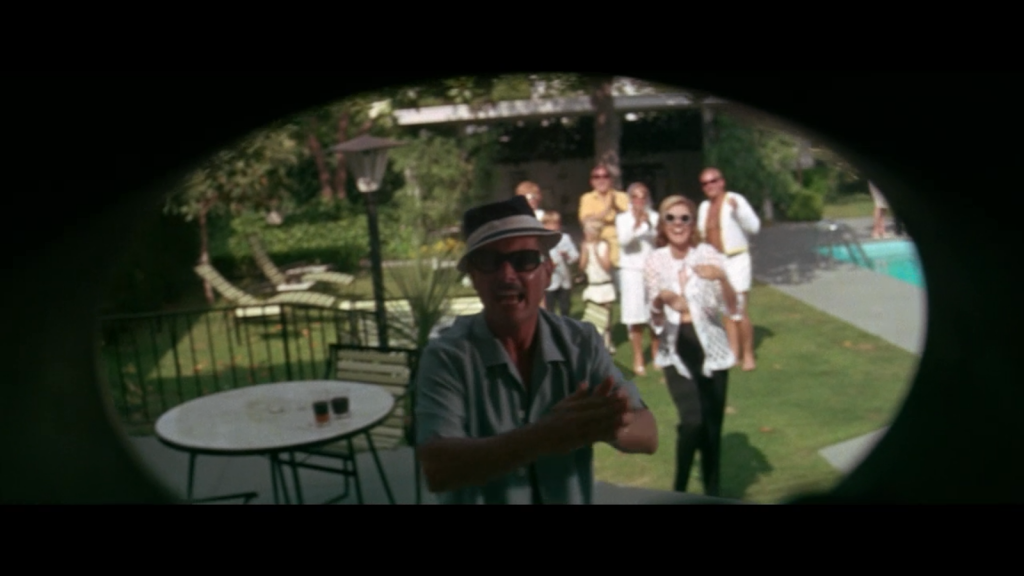
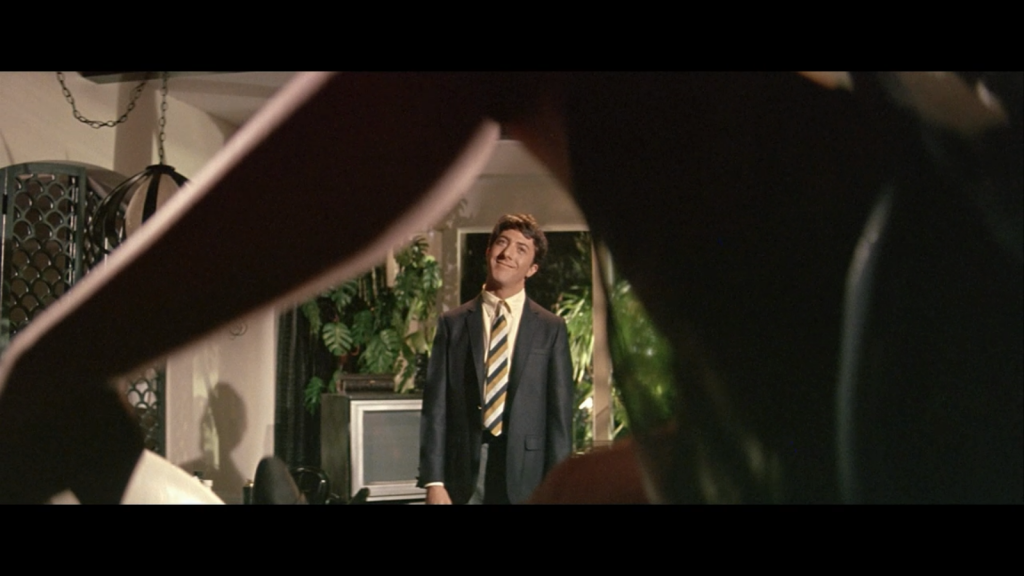
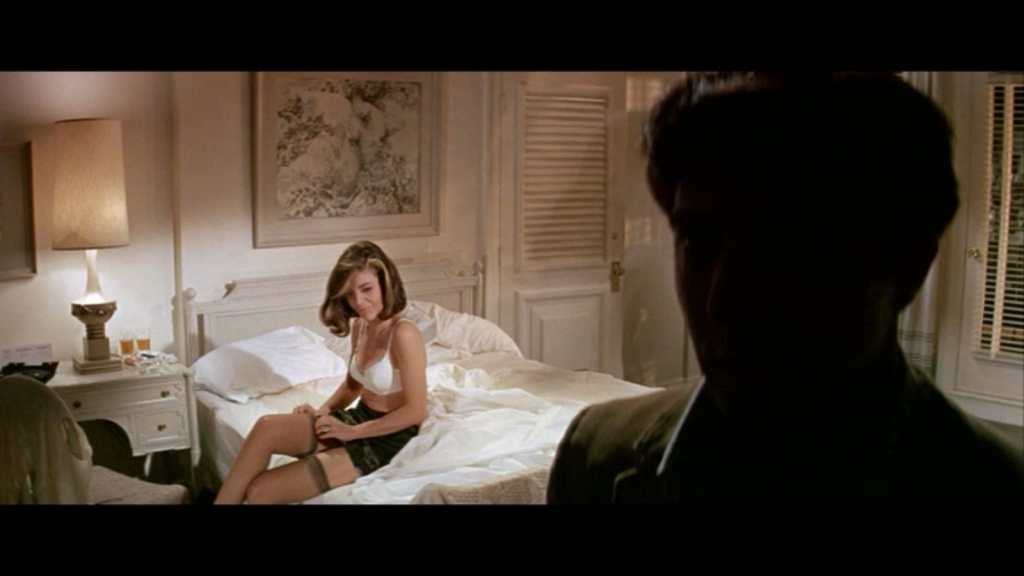
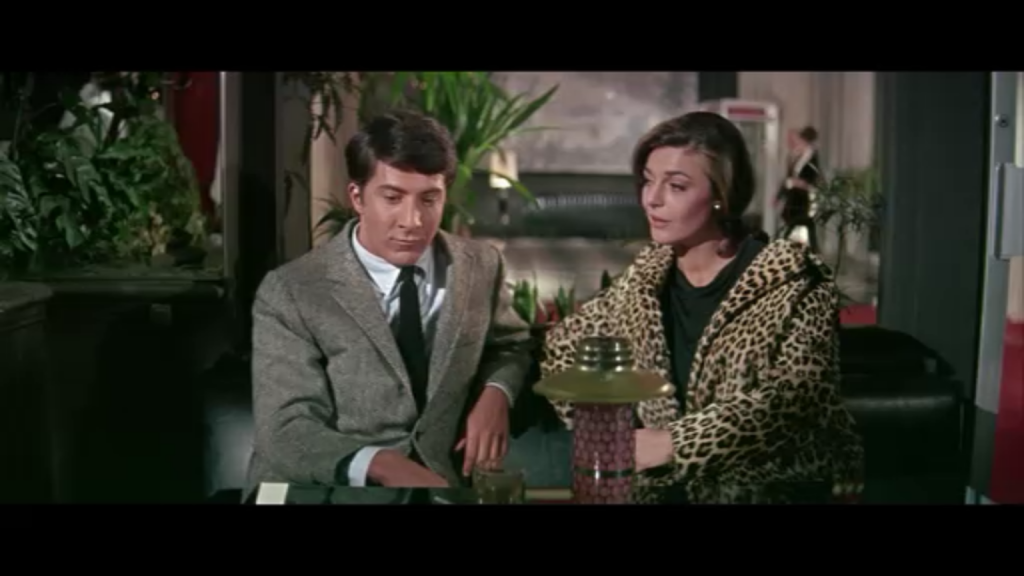
One thought on “Graduate, The (1967)”
A no-brainer must.
‘The Graduate’ has a unique distinction in my many years as a film fanatic.
I saw it on its release – 1967 – so I was 12. I had read the book. I think I was in the 8th grade, and I was reading it openly in my Catholic school. A nun called my mother to complain about my reading material. My mom told me there had been a complaint, but she didn’t reprimand me. I think she probably just asked me to be more careful about ‘parading’ what I was reading.
The film came to a downtown theater. Since I had read the book – and since I had missed the opportunity to see Nichols’ film of ‘Who’s Afraid of Virginia Woolf?’ (it played the drive-in circuit so I missed out) – I was quite excited to ‘The Graduate’.
I went on the first Saturday afternoon. I saw the 1 pm showing. There were five showings that day. I stayed all day.
I had not planned to stay all day, of course. I wish I knew now what compelled my 12-year-old brain to keep me there all day. I don’t think it was the ‘salacious’ nature of the film. I honestly think it had something to do with the freshness of the style of filmmaking. I simply had not seen a film like it…ever.
At the time, I had been cast in a Lillian Hellman play (‘Watch on the Rhine’) at nearby Lafayette College, so I was suddenly around college kids quite a bit. Since ‘The Graduate’ has to do with college kids as well…there may have been some connection of fascination there. I had never really been around college kids before, either – and suddenly I was around them all the time as I rehearsed the play.
But, again…’The Graduate’ simply struck a very deep chord with me. Obviously.
To this day, it’s a remarkable film – even tho I think younger ffs may find it somewhat talky rather than visually inventive. But Nichols’ main concern has usually been the performances of his actors (since he was primarily known as a stage director, I suppose). He has always had a unique ability to get the kinds of performances from people who normally couldn’t deliver in quite the way they deliver here. For example…has Bancroft ever been better (‘Miracle Worker’ notwithstanding)? Her Mrs. Robinson is a Master Class performance: Woman As Remorseless Predator. Her levels are deep, dark, fierce and empty. Most of the rest of the cast (including Hoffman) operate on a rather deadpan level of subtle humor and it consistently works.
Of course, ‘The Graduate’ is mostly sharply comic only in its first half, then it turns dark (except for the odd return to the isolated ‘gag’). This is intentional – to remind us that the film deals with some fairly serious s**t…oh, like, for example…notice how Bancroft and Elizabeth Wilson (Hoffman’s mother) have almost the same hair color and hair style. Coincidence? Notice how Ross does eventually ‘ok’ the idea of what Hoffman has done. Are we to take this as her own belief that her mother is worthless? And there’s more. The film has a lot (that’s not nice) to say about bourgeois society. (Note how this is ‘hammered’ home by way of what Hoffman does with the cross at the church near film’s end.) Makes you wonder if enough of those in upper society got the joke – but, then, I doubt they were the target audience.
By the way, the screenplay by Calder Willingham and Buck Henry is a knockout.
The film would be somewhat less than what it is without the Simon and Garfunkel songs. They are used cleverly – particularly with a free-fall version of ‘Mrs. Robinson’ near the end of the film.
Fun and tough stuff.